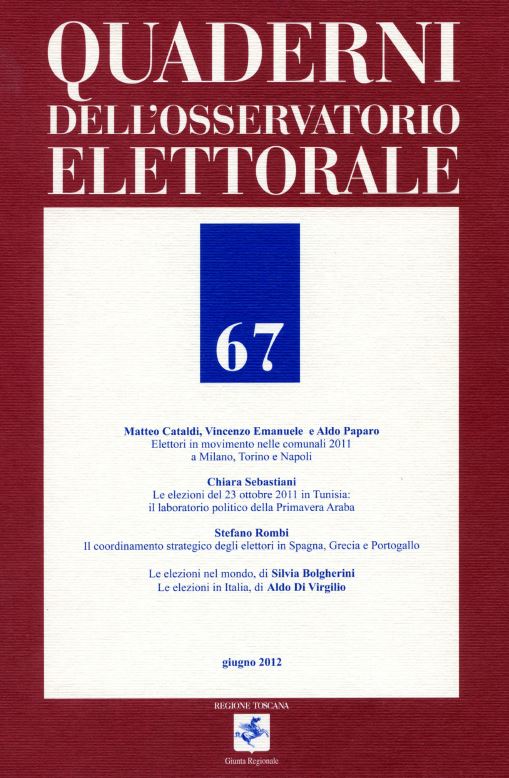Le elezioni del 23 ottobre 2011 in Tunisia: il laboratorio politico della Primavera Araba
Pubblicato 2012-06-30
Come citare
Abstract
On the 23rd October 2011 Tunisia held what are commonly deemed the first democratic elections of the country. The process is highly interesting not only because it concerns the country where the so-called Arab spring started, but also because it managed a successful transition from a charismatic revolutionary provisional regime (led by the High Commission for the Attainment of the Goals of Revolution) to a legal-rational institution (the National Constituent Assembly). The instruments for this transition had to be built up from scratch: the main ones being the Independent Electoral Authority, the new Electoral Law and bye-laws concerning the activities of political parties, ongs, the press. A complex process of institutional learning followed: inexperience in democratic processes led to a highly fragmented structure in political parties, a high dispersion of vote and a participation involving only about half the body politic. On the other hand the process, followed by official observers form the EU as well as by international accredited ongs was pronounced to have been on the whole fair, honest, transparent and equal. The overwhelming success of the islamic party Ennahdha was not unexpected. Surprises rather came from the success of the outsider party Al Aridha and from the scores, worse than expected, of the parties identifying themselves as “secular”. A deeper analysis, based on Rokkan’s theory of cleavages, might thus appropriately be called for.

